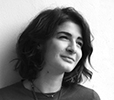Studying at the University of Verona
Here you can find information on the organisational aspects of the Programme, lecture timetables, learning activities and useful contact details for your time at the University, from enrolment to graduation.
Academic calendar
The academic calendar shows the deadlines and scheduled events that are relevant to students, teaching and technical-administrative staff of the University. Public holidays and University closures are also indicated. The academic year normally begins on 1 October each year and ends on 30 September of the following year.
Course calendar
The Academic Calendar sets out the degree programme lecture and exam timetables, as well as the relevant university closure dates..
| Period | From | To |
|---|---|---|
| Sem. 1A | Sep 21, 2020 | Oct 31, 2020 |
| Sem. 1B | Nov 9, 2020 | Jan 9, 2021 |
| Sem. 2A | Feb 15, 2021 | Apr 1, 2021 |
| Sem. 2B | Apr 14, 2021 | May 29, 2021 |
| Session | From | To |
|---|---|---|
| Sessione d'esame invernale | Jan 14, 2021 | Feb 13, 2021 |
| Sessione d'esame estiva | Jun 7, 2021 | Jul 24, 2021 |
| Sessione d'esame autunnale | Aug 23, 2021 | Sep 18, 2021 |
| Session | From | To |
|---|---|---|
| Sessione di laurea estiva | Jul 5, 2021 | Jul 10, 2021 |
| Sessione di laurea autunnale | Nov 8, 2021 | Nov 13, 2021 |
| Sessione di laurea invernale | Mar 28, 2022 | Apr 1, 2022 |
| Period | From | To |
|---|---|---|
| Festa di Ognissanti | Nov 1, 2020 | Nov 1, 2020 |
| Festa dell'Immacolata | Dec 8, 2020 | Dec 8, 2020 |
| Vacanze di Natale | Dec 24, 2020 | Jan 6, 2021 |
| Vacanze di Pasqua | Apr 2, 2021 | Apr 6, 2021 |
| Festa della liberazione | Apr 25, 2021 | Apr 25, 2021 |
| Festa del lavoro | May 1, 2021 | May 1, 2021 |
| Festa del Santo Patrono | May 21, 2021 | May 21, 2021 |
| Festa della Repubblica | Jun 2, 2021 | Jun 2, 2021 |
| Vacanze estive | Aug 9, 2021 | Aug 15, 2021 |
Exam calendar
Exam dates and rounds are managed by the relevant Humanistic Studies Teaching and Student Services Unit.
To view all the exam sessions available, please use the Exam dashboard on ESSE3.
If you forgot your login details or have problems logging in, please contact the relevant IT HelpDesk, or check the login details recovery web page.
Should you have any doubts or questions, please check the Enrollment FAQs
Academic staff
 francesco.bianchi@univr.it
francesco.bianchi@univr.it
 bonifacio@teologiaverona.it
bonifacio@teologiaverona.it
 evita.calabrese@univr.it
evita.calabrese@univr.it
 andrea.cavalletti@univr.it
andrea.cavalletti@univr.it
 elena.desilvestri@univr.it
elena.desilvestri@univr.it
 francesco.lupi@univr.it
francesco.lupi@univr.it

Mastrocinque Attilio
 attilio.mastrocinque@univr.it
attilio.mastrocinque@univr.it
 +39 045802 8386
+39 045802 8386
 pieralberto.porcedducilione@univr.it; pierre_pordd@yahoo.it
pieralberto.porcedducilione@univr.it; pierre_pordd@yahoo.it
 045 8028732
045 8028732
 nicola.turrini@univr.it
nicola.turrini@univr.it
 mariarenata.zanchin@univr.it
mariarenata.zanchin@univr.it
Study Plan
The Study Plan includes all modules, teaching and learning activities that each student will need to undertake during their time at the University.
Please select your Study Plan based on your enrollment year.
1° Year
| Modules | Credits | TAF | SSD |
|---|
2° Year activated in the A.Y. 2021/2022
| Modules | Credits | TAF | SSD |
|---|
3° Year activated in the A.Y. 2022/2023
| Modules | Credits | TAF | SSD |
|---|
| Modules | Credits | TAF | SSD |
|---|
| Modules | Credits | TAF | SSD |
|---|
| Modules | Credits | TAF | SSD |
|---|
| Modules | Credits | TAF | SSD |
|---|
Legend | Type of training activity (TTA)
TAF (Type of Educational Activity) All courses and activities are classified into different types of educational activities, indicated by a letter.
History of Philosophy 2 (2021/2022)
The teaching is organized as follows:
Learning outcomes
History of Philosophy 2
The course aims to provide students with an overview of the main authors and major schools of modern and contemporary philosophy, seen as essential moments in the history of Western thought. It also aims to teach the correct use of philosophical terminology and the critical use of the original texts, with the final purpose of understanding key philosophical concepts and problems. Students will also develop the capacity to communicate philosophical contents to specialists and non-specialists alike, and to continue their studies at a higher level.
MODULE 1
The course aims to provide an overview of the history of early-modern philosophy and its terminology. Special attention will be given to developing a critical approach to the most important texts as well as their central issues and concepts. The anticipated learning objectives are as follows:
Knowledge: 1) Knowledge and understanding of early-modern philosophical contexts (historical-cultural contexts, philosophical traditions); 2) Knowledge and understanding of the theories developed by the major early-modern philosophers; 3) Knowledge and understanding of the lexicon of early-modern philosophy.
Skills: 1) Applying knowledge and understanding to the reading of and commentary on philosophical texts, possibly in the original or at least with some reference to it; this should be demonstrated by the mastery of an appropriate vocabulary and the ability to identify interpretative problems and suggest possible solutions; 2) Making autonomous judgments and engaging in independent reasoning; 3) Developing communication skills in the following areas: participating in guided discussions, generating and explaining ideas and defending these through arguments, and possibly delivering short presentations; 4) Enacting autonomous learning skills through the development of an appropriate study and interpretation methodology in relation to both texts and contexts.
MODULE 2
The course aims to introduce the students to the history of nineteenth and twentieth century philosophy. At the end of the course, students will be requested to show knowledge and understanding of the presented authors and texts. The course aims to provide the students with an overview of the main authors and major schools of contemporary philosophy. It also aims to teach the correct use of philosophical terminology and the critical use of the original texts, with the final purpose of understanding key philosophical concepts and problems.
Program
MODULE 1:
PREREQUISITES: Knowledge of ancient and medieval philosophy.
COURSE CONTENT: The Thought of Kant in the Context of his Time.
The course will consist of two parts:
1) General part: introduction to the history of early-modern philosophy (15th-18th centuries): cross-trajectories (e.g., religious tolerance, prejudice, the nature/dignity/vocation of the human being);
2) Monographic part: introduction to the German Enlightenment (historical and cultural features, periodization, major authors, basic concepts) and introduction to Kant’s thought (works, terminology, main theses, with special attention given to ethics, the philosophy of history and reflection on the Enlightenment).
TEACHING METHODS: The modality of course delivery will depend on the University’s measures against COVID-19. The course will consist of lectures as well as, if possible, discussions guided by the professor and short (optional) papers given by students on topics previously agreed on. The plurality of teaching methods is conceived of as a way of helping students, who will be offered as wide a range of learning paths as possible with a view to enabling them to attain, either face to face or in the context of distance education, both the knowledge- and the skills-related learning outcomes outlined above.
MANDATORY READING FOR BOTH ATTENDING AND NON-ATTENDING STUDENTS:
1) G. Cambiano e M. Mori, Tempi del pensiero. Storia e antologia della filosofia, 2. Età moderna, Laterza, Roma – Bari 2012 (or other edition), chapters 1-15 or G. Belgioioso, Storia della filosofia moderna, Le Monnier-Mondadori, Firenze – Milano 2018, chapters 1-22 (or an alternative handbook to be discussed with the professor);
2) Learning materials published on e-learning;
3) I. Kant, Risposta alla domanda: che cos’è l’illuminismo?, ed. by M. Bensi, Postfazione by A. M. Iacono, ETS, Pisa 2013, or in I. Kant, Scritti sul criticismo, ed. by G. De Flaviis, Laterza, Roma-Bari 1991, pp. 5-12, or in Che cos’è l’illuminismo? I testi e la genealogia del concetto, ed. by A. Tagliapietra, transl. by S. Manzoni and E. Tetamo, Mondadori, Milano 2010 (20001), pp. 16-41, or in I. Kant, Che cos’è l’illuminismo?, ed. by N. Merker, Editori Riuniti, Roma 2017 (1997), pp. 61-59;
4) Massimo Mori e Paola Rumore, Kant e l’illuminismo, in La filosofia dei moderni. Storia e temi, a cura di G. Paganini, Carocci, Roma 2020, pp. 321-349, 362-363.
LEARNING MATERIALS: Additional learning materials will be published on e-learning.
Bibliography
Examination Methods
Oral exam (face to face or online depending on the University’s measures against COVID-19) + optional paper.
The exam aims to assess the attainment of the course’s twofold learning outcomes (knowledge/understanding and skills) with special attention being given to ability to compare the authors studied, and this will be addressed as follows:
1) General part: (autonomously) outlining a cross-trajectory in early-modern thought: students will have to demonstrate possession of basic facts and notions, showing ability to explain them in a systematic manner and follow their diachronic development. In order to do this, they will have to prepare an oral exposition of 10 minutes devoted to a particular topic, idea or concept to be analyzed in three different authors/philosophical movements, distributed chronologically, linguistically and geographically so as to cover ideally all centuries of the program and almost two different areas. This exposition can (but has not necessarily to) consist of a commentary on chosen passages, which must be sent to the professor before the exam. Examples of quotes, used in the first part of the course, will be published on e-learning as a model and/or point of departure for cross-trajectories on the same topic; in this case, however, significant changes will have to be included by students in order to show their autonomy in learning.
2) Monographic part: ability to answer one or more questions on the German Enlightenment and Kant’s thought: students will have to prove capacity to formulate precise definitions, and possibly make connections between them (defining one or more philosophical concepts belonging to Kant’s terminology) and/or acquisition of a robust methodology for analysing texts and reflecting on their theoretical implications (reading of and commenting on a philosophical text from among those discussed in class).
Each part of the exam has equal weighting, i.e., 1/2 of the final mark. Students who will have presented an optional short paper will be exempt from the part of the exam corresponding to the nature of the work already done, whether it covers the general or the monographic part. The paper’s assessment will contribute a half of the final total.
No distinction will be made between attending and non-attending students.
Type D and Type F activities
Modules not yet included
Career prospects
Module/Programme news
News for students
There you will find information, resources and services useful during your time at the University (Student’s exam record, your study plan on ESSE3, Distance Learning courses, university email account, office forms, administrative procedures, etc.). You can log into MyUnivr with your GIA login details: only in this way will you be able to receive notification of all the notices from your teachers and your secretariat via email and soon also via the Univr app.
Student mentoring
Linguistic training CLA
Gestione carriere
Practical information for students
Documents
| Title | Info File |
|---|---|
|
|
pdf, it, 325 KB, 02/05/23 |
|
|
pdf, it, 212 KB, 02/05/23 |
|
|
pdf, it, 131 KB, 02/05/23 |
Graduation
Documents
| Title | Info File |
|---|---|
|
|
pdf, it, 99 KB, 13/10/23 |
|
|
pdf, it, 101 KB, 10/04/24 |








































